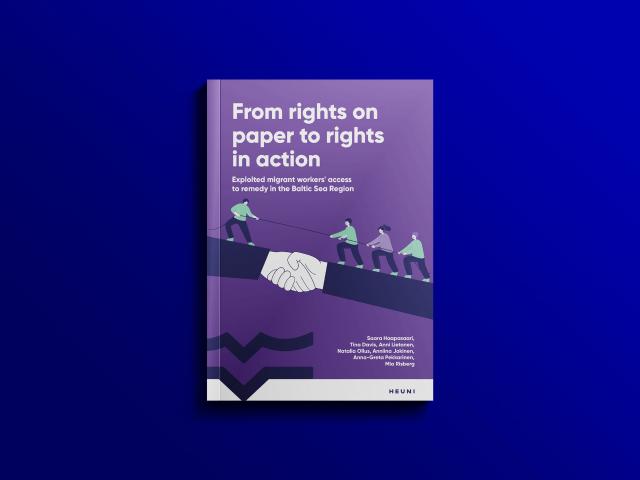Migrant workers are at a heightened risk to face labour exploitation such as underpayment, debt bondage, irregular recruitment costs, and excessive overtime. Migrant workers may also face barriers in access to justice when trying to seek restitution and remedy for the experienced abuse.
This project looks into the existing grievance mechanisms in Finland, Norway and Sweden that can be used to seek redress for labour exploitation. The project will analyze the various mechanisms utilizing earlier research and interviews and look into how effective the mechanisms are based on the UNGPs’ criteria. The mapping will act as a first step to understand what mechanisms exist in the focus countries and how to make them more effective and accessible to the violated (migrant) workers.
The project partners include HEUNI, Coretta and Martin Luther King Institute and Ethical Trading Initiative Sweden.
Project activities:
- Mapping and analysing existing grievance mechanisms, covering state-based judicial and non-judicial mechanisms as well as non-state based mechanisms.
- Identifying gaps in the existing mechanisms and assessing their accessibility to migrant workers.
- Making recommendations based on the analysis to make the grievance mechanisms more effective for migrant workers.
- Sharing the findings and the mapping to stakeholders, such as civil society, businesses, trade unions, and lawyers, as well as migrant workers themselves.
- Gathering good practices of grievance mechanisms and access to remedy from other Baltic Sea area countries: Estonia, Latvia, Lithuania, Poland, Germany and Denmark.
The project is co-funded by CBSS Project Support Facility (PSF) and CBSS CAPE III project together with the Swedish Gender Equality Agency, as well as the project partners.
Contact details
Project manager:
Sustainability specialist Saara Haapasaari, [email protected]








